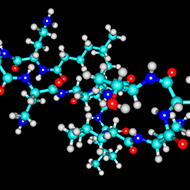
Speakers discuss colistin use and the impact of a potential ban
Recordings from the European Veterinary Antibiotics Conference (EVAC) 2020 are now available to view online.
This year's conference focused on the use of colistin and featured presentations from pharmacological, clinical and epidemiological specialists on the topic.
Speakers at EVAC 2020 discussed the use of colistin and the rising fears from veterinary professionals over a potential ban on the antibiotic. This ban could, according to the speakers, have a major negative impact on animal health and welfare – as well as public health.Xavier Chatenet, a veterinary surgeon specialising in poultry health, spoke about the lack of alternatives to colistin for the group treatment of poultry. He argued that colistin is an essential veterinary product which, if banned, could lead to greater resistance problems with the alternatives.
Dr Pascal Richez, European specialist in veterinary pharmacology and toxicology, was next to speak. Focusing on misconceptions surrounding antibiotic resistance and the importance of clinical breakpoints to help clinicians determine if a pathogen is likely to respond to treatment.
The webinar concluded with a discussion of the use of colistin in human health care, led by Dr Boudewijn Catry, epidemiologist and head of the Belgian service for healthcare-associated infections & antimicrobial resistance. He confirmed that 'the need to be concerned for colistin resistance in public health care is very low’ adding that, in human medicine, many alternatives are coming on the market.
Highlights of the EVAC webinar can be viewed here.



 The Federation of Independent Veterinary Practices (FIVP) has announced a third season of its podcast, Practice Matters.
The Federation of Independent Veterinary Practices (FIVP) has announced a third season of its podcast, Practice Matters.